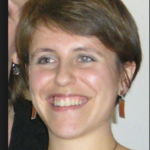Lien vers Pubmed [PMID] – 32738310
Lien DOI – 10.1016/j.neuropharm.2020.108234
Neuropharmacology. 2020;108234.
Over the last decade, robust human genetic findings have been instrumental in elucidating the heritable basis of nicotine addiction (NA). They highlight coding and synonymous polymorphisms in a cluster on chromosome 15, encompassing the CHRNA5, CHRNA3 and CHRNB4 genes, coding for three subunits of the nicotinic acetylcholine receptor (nAChR). They have inspired an important number of preclinical studies, and will hopefully lead to the definition of novel drug targets for smoking cessation. Here, we review these candidate gene and genome-wide association studies (GWAS) and their direct implication in human brain function and NA-related phenotypes. We continue with a description of preclinical work in transgenic rodents that has led to a mechanistic understanding of several of the genetic hits. We also highlight important issues with regards to CHRNA3 and CHRNB4 where we are still lacking a dissection of their role in NA, including even in preclinical models. We further emphasize the use of human induced pluripotent stem cell-derived models for the analysis of synonymous and intronic variants on a human genomic background. Finally, we indicate potential avenues to further our understanding of the role of this human genetic variation.
